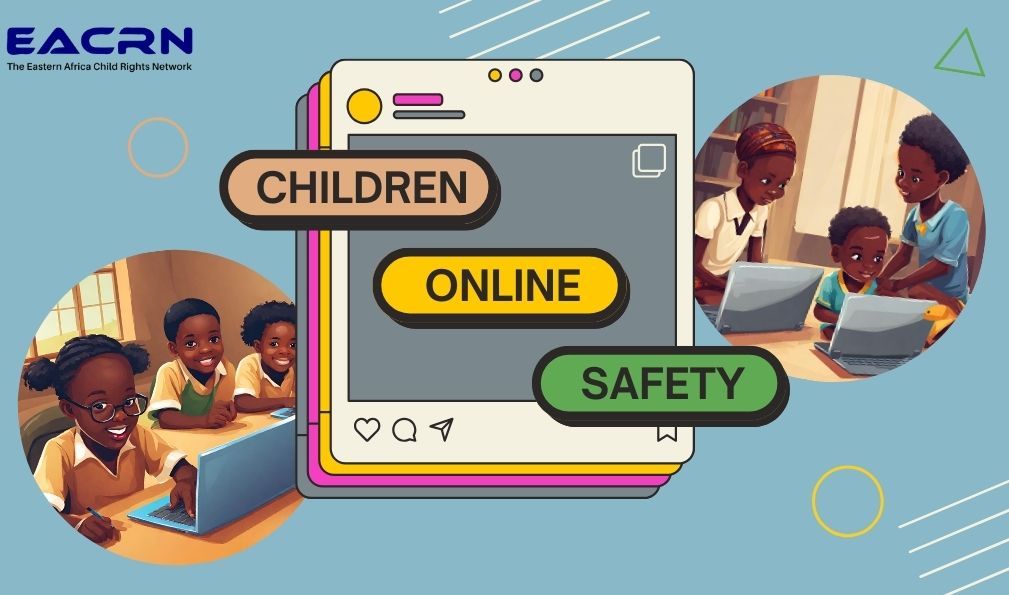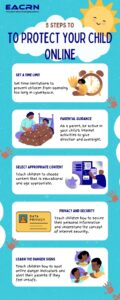Online Safety
In line with the AU theme of the year, which is Educate and African Fit for the 21st Century, there will be a significant increase in the digitization of education. Since the emergence of COVID-19, most schools have opted to conduct online classes and encouraged their students to use the internet to research and complete their schoolwork.
Today’s children are growing up in an increasingly digital world, which exposes them to the possibility of online risks. They spend most of their time learning, playing games and socializing with their peers. According to a report by the African Institute of Children Studies. , statistics reveal that 13–19% of children and youth, mostly those aged between 12 and 16 years, have had an experience of online sexual solicitation.
How to Protect your Child Online
When utilized properly and wisely, the Internet may be a valuable resource. It is the responsibility of parents to supervise their children’s online activity. The following are some actions you may take to limit and protect your child’s internet activity:.
- Be aware of potential online risks
The first step to protecting your family online is knowing about the potential risks your child may encounter online. There are many potential risks associated with online spaces and they include
1.Cyber Bullying
Cyberbullying is when someone uses online spaces like social media, messaging and gaming platforms to repeatedly humiliate, anger or shame someone else. Online bullying can severely impact your child’s confidence, mental health and well-being. Even though young children may not have their own social media accounts, they may be chatting with other people on gaming forums or chat rooms and could be at risk of being bullied
2. Harmful and inappropriate content
Whether watching videos, scrolling through social media, or browsing websites, children are at risk of seeing content that is not appropriate for their age. This harmful content can include violent, dangerous, scary and sexually explicit videos or imagery. There are ways you can proactively filter what your child sees online
3. Sexual Exploitation
Children may be victimized through the production, distribution and consumption of sexual abuse material, or they may be groomed for sexual exploitation, with abusers attempting to meet them in person or exhorting them for explicit content
- Set a time limit
We’re all aware that too much of anything is toxic. As a parent/caregiver/guardian, you should restrict your child’s time spent online. When a child spends too much time online, they become interested and want to explore more, which can lead them to unsafe and harmful websites that can hurt them physically or emotionally.
- Parental Guidance
It is important for you, as a parent, to sit down with your child and discuss the benefits and dangers of being online. In today’s world, most parents are more concerned with providing for their families than with safeguarding their children. As much as we encourage children to express themselves, we must also carefully advise and safeguard them, especially from becoming victims of online predators.
- Monitor your child’s online activities
Most parents are concerned about this action point since it contradicts their idea of providing their children with their own space. It is crucial to give children their own space, but when it comes to internet safety, parents should be at the forefront of monitoring their children’s actions across many venues. If we can put this into practice, it will help to limit the number of occurrences of cyberbullying, distributing hazardous content, and sexual exploitation.
- Lead by example
Children tend to follow what their parents do. One of the challenges that we face in the 21st century is that parents tend to spend most of their time online and they limit their physical interactions with their children. The minimal interaction will have a negative impact on the growing children since most of them will be curious to also explore the online space as their parents. This will expose them to the dangers associated with online spaces.


